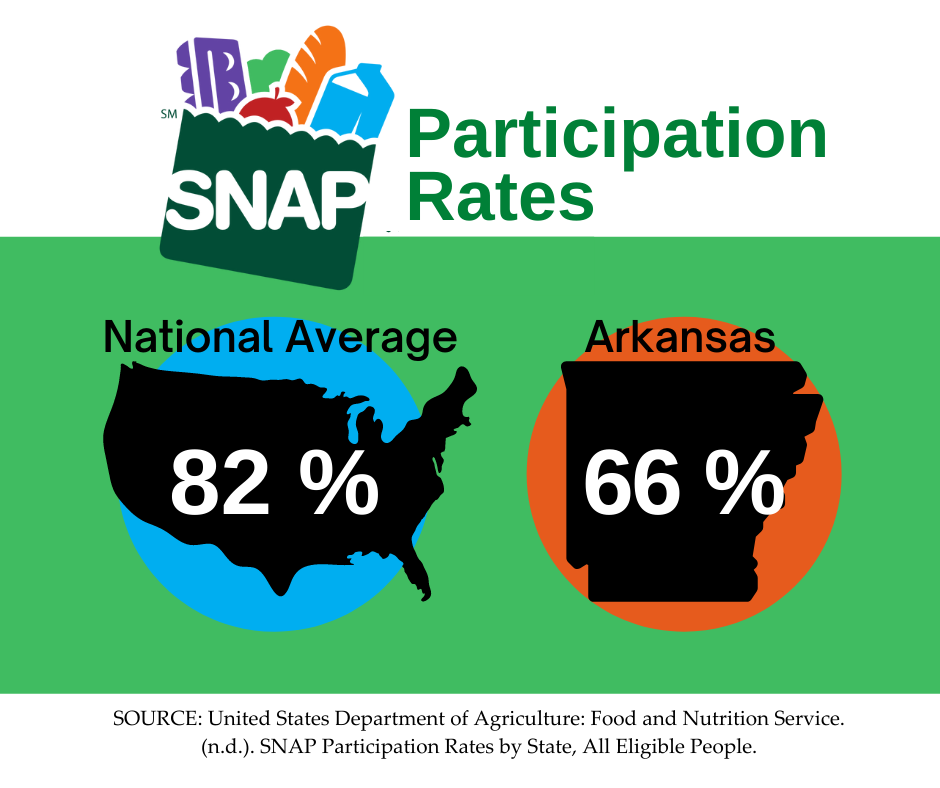A recently released report highlights the continued value of and need for the Supplemental Nutrition Assistance Program in Arkansas and recognizes the barriers facing SNAP-qualifying families. Key findings include strategies for improving healthy food choices with background on each strategy and related feedback. The report was created by The Engaging Arkansas Stakeholders to Improve SNAP’s Public Health Impact project, led by the Office of Community Health and Research at the University of Arkansas for Medical Sciences and the Arkansas Hunger Relief Alliance, with support from the Center for Science in the Public Interest. The project sought diverse opinions from across the state. Interviews and focus groups were conducted with Arkansans from food insecure households to gain first-hand perspective on the role of SNAP in diet-related health. Additionally, a statewide meeting was held with experts and representatives from local SNAP-focused organizations and interviews were conducted with key informants of the policy environment in the state.
SNAP is vital to the health and wellbeing of Arkansans, but qualifying households face multiple barriers to enrollment and utilization of SNAP.
Three strategies emerged with the highest support:
- Improve Eligibility and Enrollment in SNAP
- Improve SNAP Benefit Allocation and Frequency of Issuance
- Implement, Expand or Enhance SNAP Incentives for Fresh Fruits and Vegetables
These findings may help provide administrators, decision-makers, and support and advocacy organizations with information critical for creating and improving practices and policies that benefit SNAP participants.

